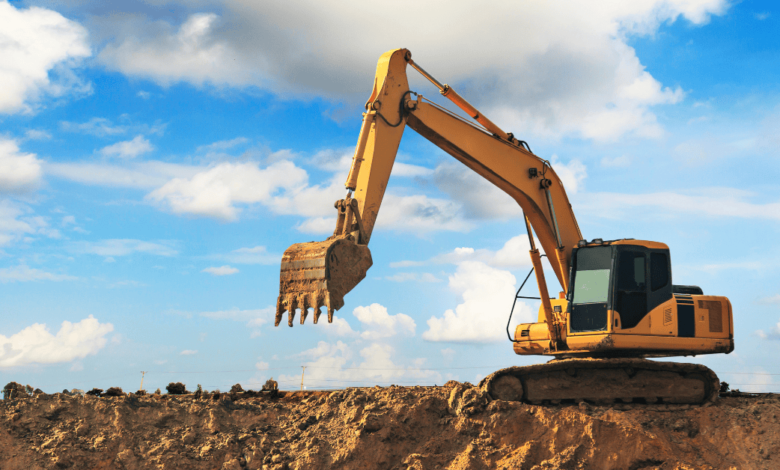Choosing the Right Excavation Contractor: What You Need to Know Before You Dig

Excavation is the backbone of most major construction projects. Whether it’s laying the foundation for a building, installing underground utilities, or landscaping a property, excavation is often the first and most critical phase of the work. Because of its importance and complexity, choosing the right excavation contractor can make the difference between a successful project and one filled with delays, added costs, or even safety hazards.
This comprehensive guide will help you understand what excavation involves, the role a contractor plays, and how to choose the right one for your needs. If you’re planning a project that requires digging, grading, or site preparation, this article will equip you with the knowledge to hire confidently and effectively.
What Does an Excavation Contractor Do?
An excavation contractor is a professional who specializes in site preparation, grading, trenching, and other earth-moving services. These contractors operate heavy machinery and equipment to remove soil, rock, and other materials, making way for foundations, utility lines, driveways, drainage systems, and more.
Here are some of the primary services typically offered by excavation professionals:
1. Site Preparation
Before any construction can begin, the land needs to be prepared. This includes clearing debris, trees, and rocks, as well as leveling and grading the site to the desired specifications. A contractor ensures that the site is suitable for the planned structure and complies with engineering and design requirements.
2. Trenching
Whether for utility lines, sewer systems, or irrigation, trenching involves digging narrow, precise channels in the earth. This must be done carefully to avoid damaging existing infrastructure and to ensure proper depth and alignment.
3. Foundation Excavation
Every structure needs a strong and stable foundation. Contractors dig out the required space based on engineered designs and site conditions. Precision is essential to ensure that the foundation can support the weight and layout of the building.
4. Grading and Drainage
Proper grading ensures that water flows away from buildings and does not pool around foundations. This reduces the risk of flooding, mold, and structural damage. Contractors may also install drainage systems or swales as needed.
5. Demolition and Debris Removal
In some cases, a site may require the removal of existing structures or pavement. Excavation contractors often handle demolition work and remove the resulting debris to prepare the area for new development.
The Importance of Hiring a Qualified Excavation Contractor
Excavation work might seem straightforward, but it’s actually highly technical and regulated. Hiring an experienced excavation contractor ensures that your project complies with safety codes, environmental guidelines, and engineering specifications.
1. Safety
Excavation is one of the most hazardous phases of construction. The risks include trench collapses, machinery accidents, and exposure to underground utilities. Professionals understand how to mitigate these risks through proper planning, equipment use, and safety practices.
2. Compliance and Permitting
Most excavation work requires permits and adherence to zoning laws, building codes, and environmental regulations. A licensed contractor will handle this aspect for you, reducing the risk of legal issues and costly delays.
3. Equipment and Expertise
Professional contractors have access to specialized machinery—such as backhoes, bulldozers, and trenchers—and the knowledge to operate them efficiently. This ensures that the job is done quickly, correctly, and cost-effectively.
4. Project Coordination
Excavation is often just one part of a larger construction effort. A skilled excavation contractor can coordinate with engineers, architects, and other contractors to ensure that the project flows smoothly from start to finish.
How to Choose the Right Excavation Contractor
Choosing the right contractor requires more than just comparing prices. It’s about finding a trustworthy professional who understands your project’s scope, timeline, and technical needs. Here’s what to look for:
1. Licensing and Insurance
Always verify that the contractor is licensed to perform excavation in your region and carries proper insurance. This should include liability and worker’s compensation coverage. It protects you from being held financially responsible for accidents or property damage.
2. Experience
Ask how long the contractor has been in business and whether they’ve worked on projects similar to yours. An experienced team will be able to foresee challenges and solve problems efficiently.
3. References and Reviews
Check reviews online and ask the contractor for references. Speaking with past clients can provide valuable insight into how the contractor communicates, sticks to deadlines, and handles issues that arise.
4. Detailed Estimates
Look for contractors who provide itemized estimates outlining labor, equipment, materials, and any possible extras. This helps avoid unexpected costs later on and shows that the contractor understands the scope of work.
5. Communication and Transparency
A good excavation contractor will communicate openly about scheduling, progress, and any changes to the plan. You should feel comfortable asking questions and receiving clear, honest answers.
Common Mistakes to Avoid
When hiring for excavation work, some missteps can turn into major problems. Avoid the following mistakes to ensure a successful project:
Hiring Based on Price Alone
Low bids may be tempting, but they often signal inexperience, lack of proper equipment, or an attempt to cut corners. In excavation work, cheap often means risky.
Not Checking Credentials
Always verify that your contractor has the proper certifications and licenses. Never assume—ask for documentation.
Ignoring the Contract
Always have a written contract that outlines the project details, timeline, costs, and responsibilities. Verbal agreements can lead to misunderstandings and disputes.
Poor Site Assessment
Make sure the contractor performs a thorough site assessment before beginning work. They should evaluate soil conditions, existing infrastructure, and any environmental concerns.
The Role of Technology in Modern Excavation
Today’s excavation work goes far beyond shovels and bulldozers. Modern technology plays a critical role in improving accuracy, safety, and efficiency:
GPS and Laser Grading
Many contractors now use GPS-guided equipment to perform precise grading. This minimizes errors and ensures the site is prepared exactly according to design.
3D Modeling and Site Scanning
Before breaking ground, some professionals use 3D scans to map out the project area. This helps identify obstacles and plan the excavation more effectively.
Machine Automation
Advanced equipment can automate certain tasks, reducing manual labor and speeding up the timeline. This also improves safety by limiting human error.
By choosing a contractor who embraces these tools, you gain the benefit of cutting-edge practices that lead to better results.
Questions to Ask Before Hiring
Here are some essential questions to ask any contractor you’re considering:
- How long have you been working in excavation?
- Can you provide a list of past projects similar to mine?
- What kind of insurance do you carry?
- Will you handle permits and inspections?
- What safety measures do you implement on the job site?
- How do you handle unforeseen issues or delays?
Their answers will help you assess whether they’re the right fit for your project.
Final Thoughts
Excavation is more than just moving dirt—it’s a critical phase that lays the groundwork for everything that follows. Selecting the right contractor ensures your project gets off to a strong start and avoids costly setbacks. From site clearing and trenching to grading and utility installation, the work must be precise, safe, and in full compliance with all codes.
If you’re planning a construction project, be sure to hire a reliable excavation contractor in coral springs with the right mix of experience, equipment, and communication skills. Don’t rush the decision. Take the time to evaluate your options carefully, and always prioritize quality and safety over price alone.
By investing in the right professional from the beginning, you’re not just paying for excavation—you’re building the foundation for a successful project.




